- 在几点时间的动作常用未完成体





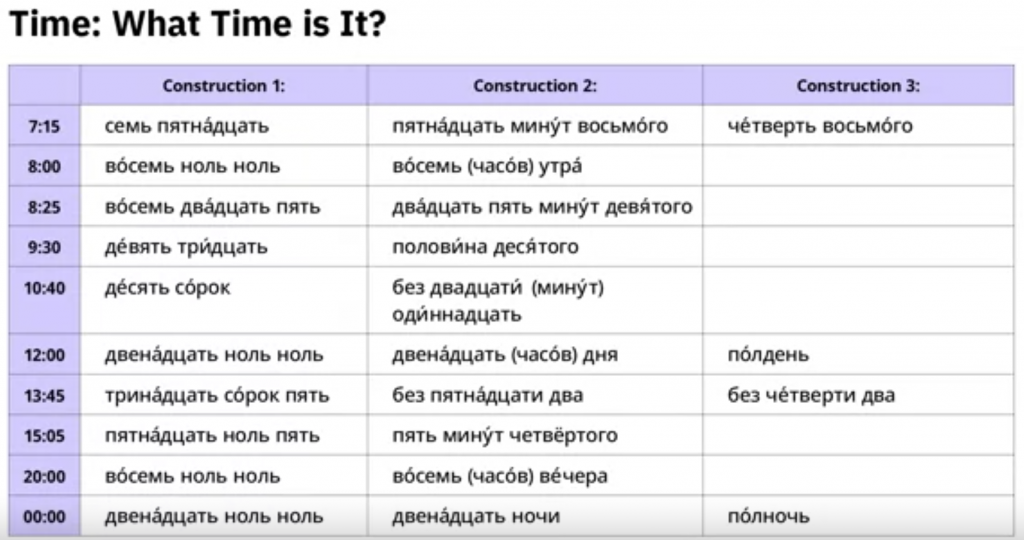
четверть 一刻. третий час第三个时段 половина 二分之一. ноль. день – дня полдень полночь
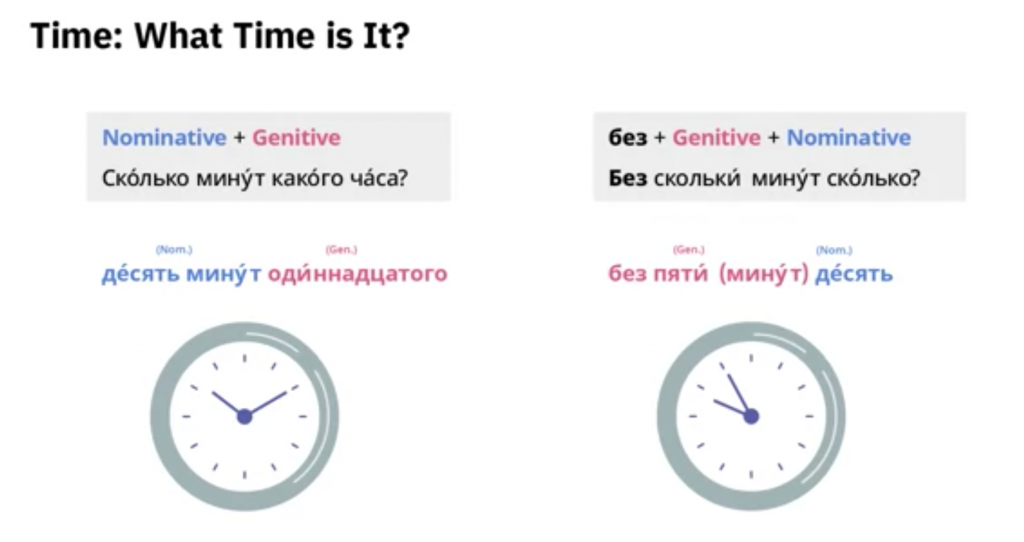
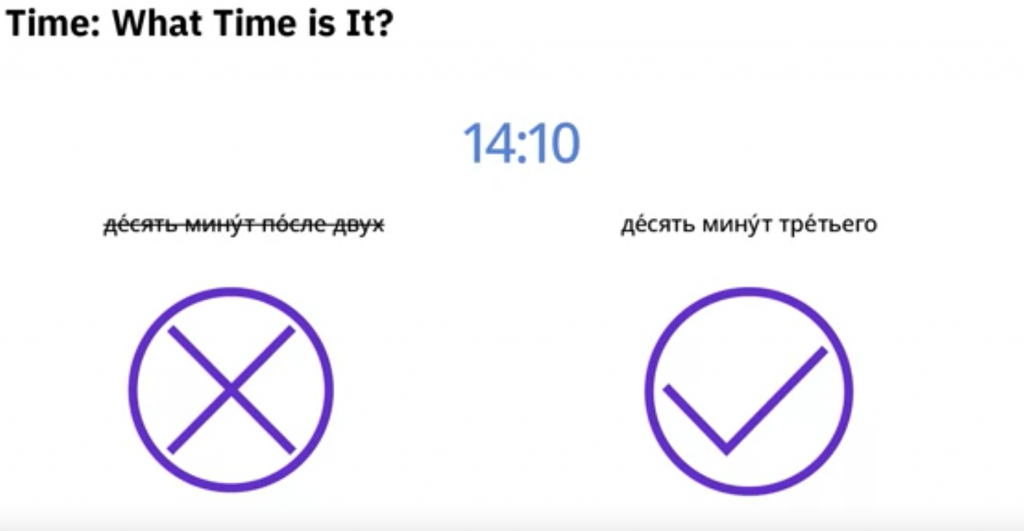


一步一步学俄语






четверть 一刻. третий час第三个时段 половина 二分之一. ноль. день – дня полдень полночь



回答 сколько времени?的问题用未完成体(= как лолго?多久/多长时间了?),强调动作用了多长时间。


| нсв | св | |
|---|---|---|
| 将来时 | буду читать | прочитатю |
| 我将要读书 | 我要把书读完 | |
| 现在时 | читаю | —— |
| 我在读书 | ||
| 过去式 | читал | прочитал |
| 我读过了 | 我读完了 |














试比较 стать (св) / быть (нсв)
Being too lazy to make up many different verbs, we usually make new ones based on the old ones. The vast majority of unprefixed verbs are imperfective.
The last phenomenon is known as suppletion and only happens for a limited number of verbs and their derivatives. The English verb “to go” is another example of such behavior (its past form is “went”).
Note that suffixation is very popular for secondary imperfectives. Usually only one prefixed verb is considered an “ideal match” for an imperfective verb. Others are somewhat different in meaning (or a lot different). But you need imperfective partners for these, too, so Russian uses suffixes for that:
imperfective verbs
Perfective verbs describe events: singular, definite actions that are viewed as localized in time. They “happened” at some moment (“I made a video”, “I slept for some time and then went outside”). Or they describe a certain change of state at some “turning point” (not yet eaten→eaten, not slept enough→slept enough and ready to get up).
It is argued in a few works that “a natural” perfective is just a prefixed verb where a prefix’s metaphorical meaning so conveniently overlaps the verb’s own meaning, that you cannot feel any change. So don’t be surprised if some vague actions have several perfective matches for a single imperfective verb.
That also means that sometimes you’d better memorize a pair even if it is technically a “poor” match. After all, in some contexts it will come in handy:
Certainly use imperfective when specifying the manner in which the action should be performed.
Use perfective when asking for a simple action that is not a really obvious next action.
(for example, with “please” and following details; it is rare you would politely ask for an obvious thing to do)
There is also the important permission/denial pattern: use imperfective when NOT letting something.
| MAY YOU DO IT? | Example |
|---|---|
| yes + imperf. | «Можно открыть окно?» — «Да, открывай». (I don’t mind) |
| yes + perf. | «Можно открыть окно?» — «Да, открой». (support) |
| neg. + imperf. | Не открывай ничего. (do not allow) |












| 未完成体信号词 | 完成体信号词 | ||
|---|---|---|---|
| каждый день/неделю/месяц/год | 每天/周/月/年 | уже | 已经 |
| раз в месяц/ много раз | 一个月一次 / 很多次 | сегодня | 今天(具体时间,表示不是经常的) |
| часто | 经常 | в это( времня) | (具体时间,表示不是经常的) |
| редко | 不经常的 | наконец / наконец-то | 最后/ 终于! |
| всегда | 总是 | сразру | 马上, 立即, (副) |
| иногда | 有时 | вдруг | 忽然 |
| обычно | 通常 | всё | 至今(还); 仍然; 还是 |
| как часто | 多久 | за два часа | 在...时间内 |
| регулярно | 定时地;有规律地;经常地;按时地 | Через неделю | 经过....时间 |
| когда | (表现在时)当….的时候 | Во вторник | 具体时间,表示不是经常的 |
| несколько | 不少次 | ||
| весь день/ ночь | 整天/整个晚上 | ||
| давно | 很久(以来),很长时间,久;很早以前 ;早就 | ||
| долго/ недолго | 很久;长久/ 不长久地,时间不长 | ||
| час/неделю/месяц/год | 小时/周/月/年 | ||
| никогда́ не | 从不 never | ||
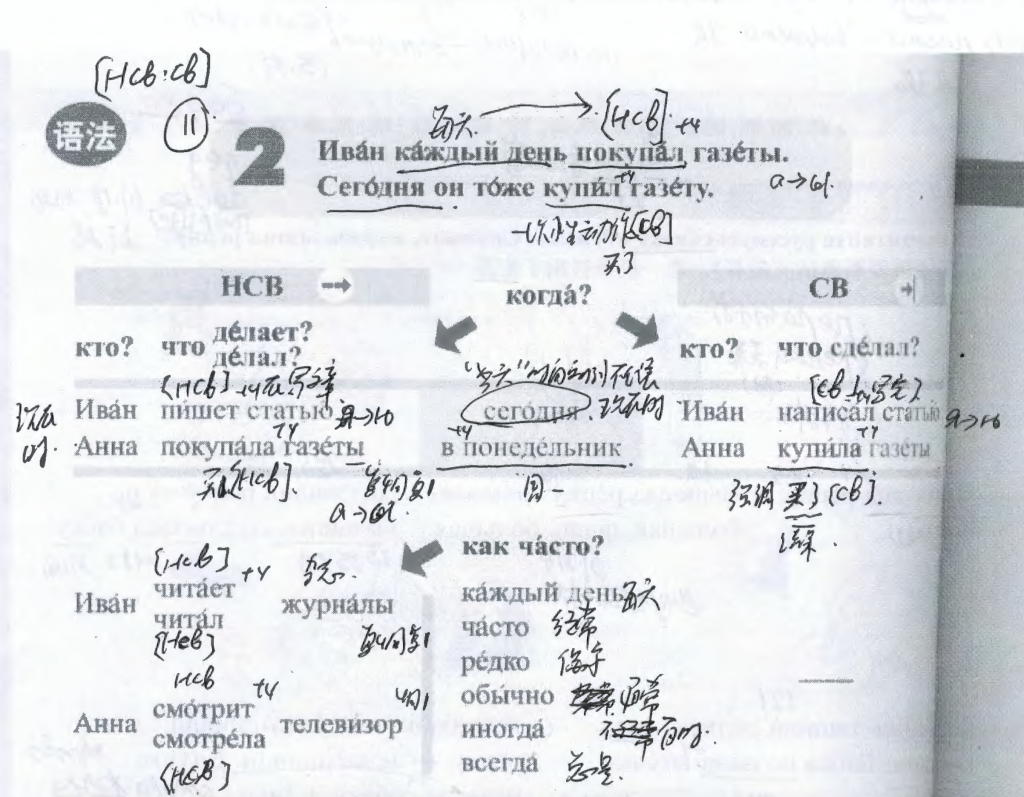


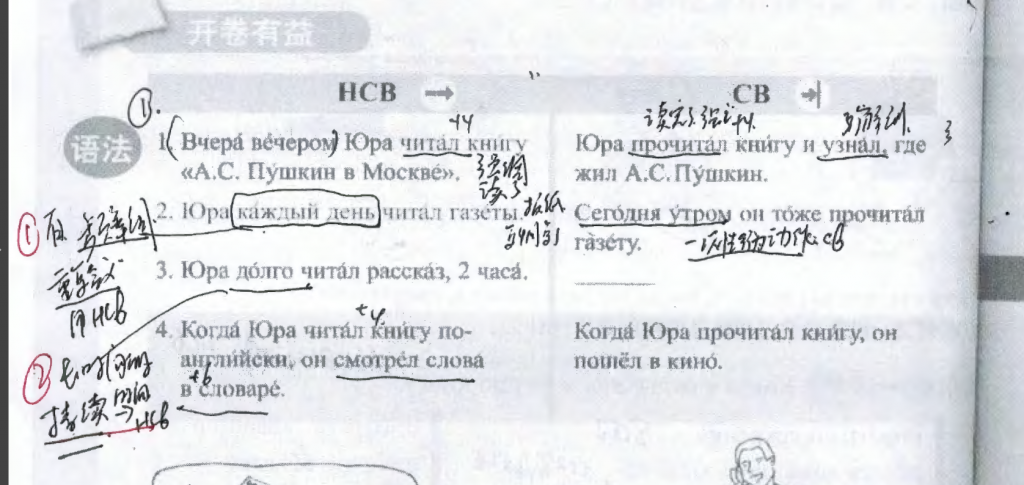


…нсв…,…нсв…两个动作是并列同时发生的关系
…св…,….св….两个动作有先后次序的关系


